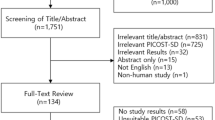Abstract
Angiontension-converting enzyme inhibitors (ACEIs) are beneficial in the treatment of diabetic and nondiabetic kidney disease, coronary artery disease and congestive heart failure. One adverse effect of ACEIs use is a rise in serum creatinine and potential renal failure. This paper attempts to quantify this risk and assess the need for pre- and post-ACEI serum creatinine measurements. A computerized search of Kaiser Permanente Northwest's electronic medical record was conducted to find patients over the age of 40 years taking lisinopril between July 1, 2000 and June 30, 2002. Patient demographic information and presence in diabetes and coronary artery disease registries was collected. A subsequent search for pre- and postlisinopril serum creatinine levels within 6 months of initial lisinopril prescription was conducted. Patients with prelisinopril creatinine ⩽1.2 mg/dl and postlisinopril creatinine >2.5 mg/dl underwent chart review to discern adverse events associated with the rise in serum creatinine. A total of 18 977 patients were prescribed lisinopril between July 1, 2000 and June 30, 2002. In all 13 166 patients had a pre- and postlisinopril creatinine checked. In all, 31 patients had a rise in creatinine from ⩽1.2 mg/dl to >2.5 mg/dl (0.2%). Possible contributors to rise in creatinine included congestive heart failure, dehydration and infection. No patients developed end-stage renal disease, although three died. In conclusion, end-stage renal disease is an unlikely outcome among patients prescribed lisinopril and is most likely associated with other events.
This is a preview of subscription content, access via your institution
Access options
Subscribe to this journal
Receive 12 digital issues and online access to articles
$119.00 per year
only $9.92 per issue
Buy this article
- Purchase on Springer Link
- Instant access to full article PDF
Prices may be subject to local taxes which are calculated during checkout

Similar content being viewed by others
References
Maschio G et al. Effect of angiotension-converting-enzyme inhibitor benazepril on the progression of chronic renal insufficiency: the Angiotension-Converting-Enzyme Inhibition in Progressive Renal Disease trial. N Engl J Med 1996; 334: 939–945.
Ball SG, Hall AS, Murray GD . ACE inhibition, atherosclerosis and myocardial infarction—the AIRE Study in practice: Acute Infarction Ramipril Efficacy Study. Eur Heart J 1994; 15(suppl B): 20–25.
Pfeffer MA et al. Effect of captopril on mortality and morbidity in patients with left ventricular dysfunction after myocardial infarction: results of the survival and ventricular enlargement trial. N Engl J Med 1992; 327: 669–677.
Chobanian AV et al. The Seventh Report of the Joint National Committee on Prevention, Detection, Evaluation, and Treatment of High Blood Pressure. JAMA 2003; 289: 2560–2572.
Ferreira A et al. Angiotension-converting enzyme inhibitor in heart failure: physician's prescribing behavior. J Card Fail 1997; 3: 295–302.
Phillips LS et al. Clinical inertia. Ann Intern Med 2001; 135: 825–834.
Brown JB, Glauber HS, Nichols GA . The effect of intensifying management of a diabetic population over ten years to improve outcomes. Western J Med 2000; 172: 85–90.
Gruppo Italiano per lo Studio della Sopravvivenza nell’Infarto Miocadico Investigators. GISSI-3: effects of lisinopril and transdermal glyceryl trinitrate singly and together on 6-week mortality and ventricular function after acute myocardial infarction. Lancet 1994; 343: 1115–1122.
Bakris GL, Weir MR . Angiotension-converting enzyme inhibitor-associated elevations in serum creatinine: is this a cause for concern? Arch Intern Med 2000; 160: 685–693.
Author information
Authors and Affiliations
Corresponding author
Rights and permissions
About this article
Cite this article
Thorp, M., Ditmer, D., Nash, M. et al. A study of the prevalence of significant increases in serum creatinine following angiotension-converting enzyme inhibitor administration. J Hum Hypertens 19, 389–392 (2005). https://doi.org/10.1038/sj.jhh.1001832
Received:
Revised:
Accepted:
Published:
Issue Date:
DOI: https://doi.org/10.1038/sj.jhh.1001832



